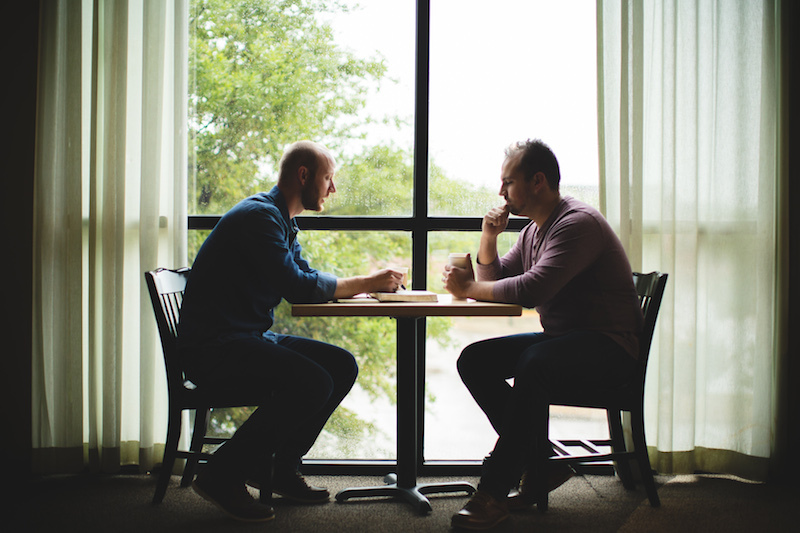
Christianity has the ability to meet a growing need for intellectual honesty in Western society. In a culture where people are forced to be politically careful of any word they say, Christianity will eventually become a place where individuals who want to find answers and those who want to challenge existing dogmas can find refuge.
Long suspected of being narrow-minded, anti-intellectual, and fearful of tough issues, "Christianity has an opportunity to again become the most fertile intellectual ground-as it was for most of the last 2,000 years," posits Brett McCracken of The Gospel Coalition (TGC).
"Why? Because a truly fruitful intellectual culture must be built on unshakeable, transcendent foundations-which Christianity has in God's Word," he asserted.
Without it, TGC argues, all debates will only devolve into an argument of "power" used to harm individuals or groups instead of being used to advance a collective understanding of an issue.
How Scriptural Foundation Inspire Intellectual Curiosity
Secular approach to discourse results in "deconstruction," says McCraken. The Christian approach, on the other hand, can be constructive because there's a solid foundation on which to build.
He went to say that in "Wisdom Pyramid" rubric, Scripture is the foundation.
"God's infallible Word functions both as a horizontal, "solid ground" foundation and as vertical scaffolding, keeping the structures above it rightly ordered," he explained. "We can build knowledge using all sorts of materials-books, the arts, nature/science, reason, community, lived experience-but none of it will be structurally sound, in the end, unless it is built on an unshakable foundation."
On the assumed subjectivity of religious teachings, the author argues that "God's objective, transcendent, true-for-everyone Truth is not a constricting, check-your-brain-at-the-door truth."
"It's a liberating, world-expanding, galvanizing, purposeful truth that gives a common vocabulary and telos for intellectual pursuits," he continued noting that it's "what inspired the founding and flourishing of Oxford, Harvard, and most of the great universities."
God's Word is the established reality that shakes intellectual complacency. It's a context through which thinking believers can learn broadly and research extensively.
McCracken's Practical Suggestions for the Church
"The Bible's infallibility frees us to learn from, and critically evaluate, mankind's fallible creations," McCracken observed. "For this reason, biblically literate Christian communities should be the most intellectually fertile communities on earth."
He proposed that churches and Christian organizations work to become the "most exciting, grace-filled spaces of academic vibrancy," noting that the overwhelming majority of university campuses appear to become monolithic or vulnerable to simply following the herd.
- Welcome Hard Questions
"If the church is to recover a vibrant intellectual culture, the recovery must include a willingness to be a safe place for hard questions," the TGC contributor pointed out.
He said that Christians should not be afraid of secular culture's questions and retorts because "God's truth is infinitely solid" and can withstand whatever criticism feeble humans can muster.
"The more good faith, God-fearing questions (Prov. 9:10), the more opportunity we all have to excavate more layers, unearth more treasures," he added.
- Model Charitable Disagreement on "Second Things"
Noting that the Gen Zs are watching at the discourse happening among their Christian elders, McCraken said that seasoned Christians must "model better how to have real, substantive, charitable debate."
He also made a distinction between the "first stuff," or the non-negotiables of Christianity, and the "second stuff," or doctrinal variations over minor issues like dietary habits and dress codes. Both can be forums for healthy discussions.
"It's clear we're all just trying to find the truth together, in community, for the glory of God," he noted.
- Cultivate Curiosity and Critical Thinking
McCracken submits that many Christians are free thinkers and that their intellectual pursuits often compel them to says things as they are.
"Free thinking" is not synonymous with boundary-less, anything-goes, right-in-my-own-eyes thinking," he clarified while challenging Christians to be the most introspective bunch on earth.
Recognizing that there are few safe havens for thoughtful people in today's world, he urged the Church to seize the opportunity to demonstrate that it can once again become the "world's most electrifying intellectual community."
























